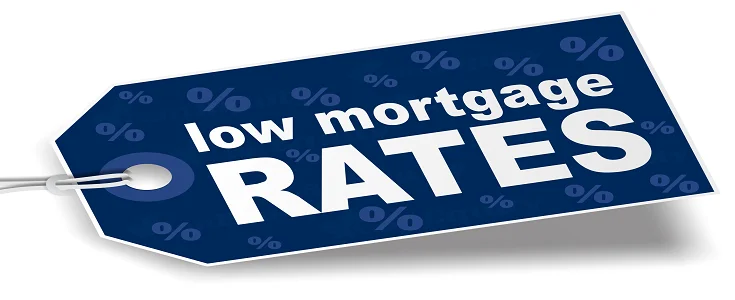News
10 Options for Financing Your Development Project
Contrary to popular belief, the average developer doesn’t have an endless stockpile of cash just waiting to be put to use. Instead, the vast majority of property developers require financial assistance for the projects they undertake.
So it’s good news that there are so many options available to explore: Including the following 10 examples:
Conventional mortgages
First up, standard high street mortgages have the potential to be useful — assuming relatively extensive waiting periods are acceptable. Mortgages allowing large sums to be borrowed with no initial collateral be necessary.
Second charge mortgages
The difference with a second charge mortgage being that the funds are typically used to top-up existing loans. A second charge mortgage can be secured against the value of your property, even if you aren’t living in it at the time.
Commercial mortgages
As the name suggests, commercial mortgage products are designed specifically for commercial property purchases and development works in general. Similar to conventional mortgages, though exclusive to commercial borrowers and often more flexible.
Secured loans
These can be great for development finance, assuming you have the required collateral to put up. Regardless of the value of your property or assets, it is usually easy to borrow the equivalent value in the form of a loan for your project.
Buy-to-let mortgages
Another very specific type of mortgage, available exclusively for those purchasing properties to let out. Useful where available, though becoming increasingly difficult to successfully obtain.
Residential bridging loans
Residential bridging loans are typically offered in accordance with the collateral/security the borrower can provide. A fantastic and comparatively affordable option when development finance is needed quickly and can be paid back within a matter of months.
Commercial bridging loans
Pretty much the exact same concept as a residential bridging loan – large sums of money are made available for commercial purposes in a matter of days, in the form of a secured loan to repay back in full within a matter of months.
Bridge-to-let
A bridge-to-let loan is typically calculated and granted on the proviso that the borrower is able to achieve 100% rental coverage from the property itself. The exit strategy being usually to refinance using a conventional buy-to-let mortgage.
Private investment
Depending on the project in question, the developer may be able to secure the financial assistance required from private investors. Just as long as the merit and value of the project can be sufficiently verified, there are always plenty of businesses and individuals alike on the lookout for valuable property investment opportunities.
Crowdfunding
Last but not least, while it isn’t considered a ‘conventional’ approach to accessing financial assistance, crowdfunding nonetheless has huge potential. It’s simply a case of giving anyone wishing to do so the opportunity to invest in your project at a comparatively low level, in exchange for some kind of stake in its successful completion/fruition. It isn’t always easy to drum up this kind of support, but can be remarkably flexible and versatile if and when you can.
For more information on any aspect of development finance, get in touch with UK Property Finance today!
10 Things To Do To Protect Yourself Against Fraud
Everybody thinks that fraud is the kind of thing that happens to other people rather than themselves. That is, until it takes them well and truly by surprise.
On the plus side, there’s plenty we can all do to significantly reduce the likelihood of being targeted by fraudsters. Or at least, prevent significant damage from being done if you are targeted.
Here are 10 simple yet effective things to start doing right now to protect yourself:
- Identify scams
First up, it’s worth reading up on and remaining up-to-date with the latest scams. From e-mail phishing to telephone scams to various types of data theft, it’s worth checking online resources to learn exactly how to identify a scam when you see it. - Keep personal information secret.
Under no circumstances should your personal information ever be given to anyone other than yourself. Be suspicious of any ‘company’ that gets in touch with you and asks for your personal information. - Change your passwords and PINs.
Along with ensuring your passwords and PINs are as strong as possible, it’s also important to ensure that they are changed on a regular basis. Never use anything that could be easily guessed or gradually worked out. - Check out your credit report.
Check your credit report from time to time for any signs of suspicious activity. Should you come across anything suspicious, report it to the relevant authority or service provider immediately. - Shred sensitive documents.
Never make the mistake of throwing away our documents that contain any potentially sensitive personal information. Shred or burn such documents to prevent your personal data from falling into the wrong hands. - Watch for unusual activity.
It’s also important to keep an eye on things like bank statements, credit card bills, and all your online accounts in general for signs of unusual activity. Always take anything, even slightly out of the ordinary, seriously. - Share your knowledge.
Try to ensure that your friends and family members take an equally proactive approach to fraud prevention. Criminals typically have absolutely no shame when it comes to targeting those who are most vulnerable, i.e., those who do least to protect themselves. - Be suspicious of everything.
From phone calls to emails to promotional information, be suspicious of anything and everything that comes your way. Unless you are 100% convinced of the legitimacy of the communication and its source, treat it as suspicious and stay away. - Avoid public Wi-Fi.
Always remember that it only takes a matter of seconds for your device and your personal information to be hacked when using public Wi-Fi connections. which means that if you are going to use a public Wi-Fi connection, avoid accessing any of your accounts or entering any sensitive information or credentials whatsoever. - Report it
Last but not least, each and every time you come across anything that is even remotely suspicious, it needs to be reported. Even if it turns out to be nothing, it is better to be safe than sorry. The problem is that each time suspicious activity is not brought to the attention of the authorities, somebody somewhere is getting away with scamming members of the public like you.
First-Time Buyers Are Flocking to Specialist Lenders
If there’s one thing to be said for major lenders right now, it’s that they aren’t making things easy for first-time buyers. Saving huge deposits and qualifying for a mortgage in the first place is becoming increasingly difficult as banks and lenders continue to put the squeeze on first-time applicants.
Which is precisely why record numbers of first-time buyers are turning to specialist lenders in order to explore a variety of alternative financial solutions for property purchases. With limited to no help being offered on the mainstream side of the lending market, some of the UK’s smallest independent lenders are experiencing a whirlwind of activity from the first-time buyers’ market.
Homeownership is a dream shared by the vast majority of UK residents. The unfortunate truth is that, as far as mainstream lending goes, most will simply never qualify. Meeting all necessary criteria is one thing, but when it comes to saving deposits of anything from £25,000 to £100,000 in some areas, it’s an outright impossibility that just isn’t going to happen. Work out the costs of a mortgage using our UK mortgage calculator.
What makes the difference with alternative lenders is the way in which each case and application is considered uniquely. With conventional lenders, it’s a case of meeting X, Y, and Z as standards or failing to qualify. The rest of the alphabet is inconsequential. With smaller, independent lenders, financial solutions are provided in direct accordance with the personal circumstances and requirements of the borrower. tailored packages to suit their needs, terms they can meet, and a deal that works for all parties.
Suffice it to say, this isn’t the kind of flexibility any of the UK’s major lenders can come close to. Tied to all-encompassing lending standards and protocol, first-time buyers are often lucky to get so far as to secure a meeting with a mortgage manager.
From bridging loans to development finance to secured loans to second-charge mortgages, there are countless opportunities to explore for those who wouldn’t typically qualify. Some require collateral; others are more about current financial circumstances; all are fundamentally flexible. Which is precisely where the difference lies—flexibility.
But the interesting thing is that while all this is going on, the UK government continues to pledge its relentless allegiance to the UK housing market in general. Specifically, make it as easy as possible for first-time buyers to get themselves on the property ladder. Yet what’s really happening is quite the opposite—major lenders are making it more difficult by the day. Even for those looking to purchase properties as a buy-to-let investment, qualifying for the required funding has never been more of a challenge.
The advice from the experts, therefore, is simple. Alongside the usual applications and inquiries lodged with major banks and lenders, speak to a specialist independent broker to find out what else is on offer. For those who fail to qualify via the usual channels, alternative lenders can often help. And even if you do qualify for a typical loan, you could still get a better deal from an alternative lender.
For more information on alternative financial solutions for all types of property purchases, get in touch with UK Property Finance today! For example, subprime mortgages are a product that allows those who may have some credit issues or may have had no chance to build credit yet to have a chance of getting a mortgage.
Is the Buy-to-Let Bubble Finally Bursting?
Over the past year or so, the rate at which lenders are offering financial support to buy-to-let landlords has been slowing significantly. For the most part, it comes down to the fact that the official UK legislation governing the buy-to-let mortgage sector has seen a near-endless array of reforms and adjustments. Things have changed radically over the past 18 months, leading some to believe that we could be looking at the long-predicted bursting of the buy-to-let bubble.
But is this really the case?
From stamp duty increases to tax relief restrictions to the strictest lending criteria seen in some time, it’s seemed for a while now that the UK has declared war on buy-to-let landlords. Newcomers to the industry and those with extensive portfolios alike have been squeezed so hard that many have been forced to exit the market entirely. Or, in some cases, find themselves denied entry in the first place.
Tax changes have hit the industry particularly hard, though they have at the same time been largely augmented by growing demand for quality rental properties. Not to mention the fact that average rents across key areas of the UK continue to climb at a rapid pace annually. Successful buy-to-let business owners are still making massive amounts of money, having staked claim to a UK property market that’s becoming more and more difficult to get into.
The problem, therefore, is one that surrounds getting into the buy-to-let game in the first place. Not to mention, expanding a portfolio once through the door.
It’s because of the various tax changes and general squeezes that conventional lenders are making it increasingly difficult for applicants to qualify for buy-to-let mortgages. Where you’d usually be a shoo-in, you may now fail to qualify for so much as a second thought. This is precisely why the market for alternative financial products and services has seen record growth over the past year or two as conventional banks and lenders close their doors en masse.
Whether it be using secured loans, specialist development finance, bridging loans, and so on, these are all the types of innovative and intelligent financial products that largely eliminate the usual qualification criteria that we can assist you with. Often exponentially cheaper and more easily accessible than any traditional mortgages and loans, buy-to-let investors are finding the financial support they require from smaller, often independent lenders offering tailored financial solutions.
What the government perhaps doesn’t realise is that by making life more difficult and more expensive for landlords, they in turn have little choice but to do likewise for their tenants. higher rents, bigger deposits, and greater scrutiny of whom they’ll let their properties out to in the first place. Most of the housing schemes and legislative changes introduced are supposed to be for the benefit of the public in general by contributing to the easing of the escalating affordable housing shortage.
Unfortunately, measures like those affecting buy-to-let investors could be sending things in the exact opposite direction.
The Lowest Fixed Rate Mortgage Deals Right Now
Once again, major lenders are dangling the proverbial ‘carrot’ in front of would-be buyers with a raft of enticing fixed-rate mortgage deals. It’s getting increasingly tricky to qualify, but for those who do, there are some decent deals doing the rounds right now.
Two-year fixed rate: up to 60% LTV
For example, there’s a 0.99% deal on two-year fixed-rate mortgages up to 60% LTV on offer at the Yorkshire Building Society, alongside a £1,495 arrangement fee.
There’s also a decent 1.09% deal on offer at Sainsbury’s Bank, which comes to an end on the last day of October 2019. This time with a £995 arrangement fee to pay.
Top Tip: Arrangement fees are standard admin charges banks impose on mortgage deals, which may be required up-front or when the purchase is completed.
Two-Year Fixed Rate: Up to 90% LTV
If you’re looking to borrow a little more towards the cost of a home, The Co-operative Bank is offering a two-year fixed rate deal of 1.79% until the end of November 2019, with an arrangement fee of £1,349.
Likewise, Platform Loans is currently offering the same 1.79% until the end of November 2019 with a £1,499 arrangement fee, though with the added bonus of £250 cashback.
Top Tip: Mortgages via Platform Loans are provided by the Co-op and can only be accessed via a broker.
Five-year fixed rate: up to 60% LTV
Over in the five-year arena, Digital Mortgages has an offer on until December 22, 2022, charging 1.59% with an arrangement fee of £900.
As for HSBC, the same 1.59% is available over five years with an arrangement fee of £900.
Top Tip: The arrangement fees combined with valuation charges may add up to £1,200 or so, but as a five-year deal at around £236 per year, this still represents great value for money.
Five-year fixed rate: up to 90% LTV
Last but not least, five-year deals up to 90% LTV are headed by Digital Mortgages, which until November 30, 2022 are up for grabs from 2.39% with a £900 arrangement fee.
As for the Co-operative Bank, things step up to a slightly higher 2.45% with an arrangement fee of £1,349.
Top Tip: There’s also the option of a 2.45% deal at Atom Bank (the operator of digital mortgages) with zero arrangement fees to pay.
Alternative financial solutions
The above represents just a small sample of the kinds of conventional mortgages being offered right now by some of the High Street’s major lenders. Whatever your intended property purchase, we highly recommend considering the alternative financial solutions that may be available.
UK Property Finance specialises in specialist development finance, bridging loans, secured loans, and a variety of intelligent financial solutions. We provide access to 100% bespoke financial solutions for all types of property purchases, with fees and interest rates that typically undercut those of all major lenders.
For more information or to discuss any of our financial products, get in touch with the UK Property Finance team today. Work out the costs of a mortgage using our UK mortgage calculator.
Home Extension Finance: Explore Your Home’s Hidden Potential
For most homeowners, there’s really no easier or more affordable way of extending a property than with a professional loft conversion. Most homes have a potentially huge amount of space that could be put too much better use, without the need for major remodelling or extension works. That said, a high-quality loft conversion doesn’t come cheap, hence the importance of carefully considering all available methods of financing the project.
The question being – which represents the best choice for you?
Get it right and a quality loft conversion can more than pay for itself. By increasing the overall value of your property by as much as 25%, a loft conversion can be one of the most outstanding long-term investments any homeowner can make. When it comes to financing these kinds of alterations, the preferred options for UK homeowners are as follows:
Re-mortgage
One readily available option for larger loans is re-mortgaging. Taken either as an extension on your current mortgage or a new mortgage if yours is already paid up, such loans can technically be offered with no upper limit. On the downside, any kind of mortgage deal can be time-consuming and difficult to organise, while at the same time being secured on your property which is used as security for the loan.
Unsecured personal loan
If the required sum comes in under £25,000, it could be easy and affordable to go with a standard personal loan. Unsecured loans are typically easy to access and carry fair interest rates, with no collateral being required. That said, qualification for personal loans of a relatively high nature can be tricky these days, as major banks and lenders continue tightening their criteria.
Bridging loans
An increasingly popular choice, bridging loans are great for those looking to borrow a moderate sum of money for a short period of time. For example, you could borrow £20,000 with a bridging loan, add £40,000 to the value of your home, sell-up as part of a planned relocation and pay back the loan within weeks or a few months. Simple, uncomplicated and fast access to the funds you need. Bridging loans are great where fast and full repayment is preferable.
Equity release
It’s also worth remembering just how much money there is tied up in the rest of the property as a whole. Equity release can typically be tailored to suit the needs of homeowners across the board, providing the perfect solution when funds are needed quickly. With equity release, there are very few qualification criteria to speak of and minimal complexities. With equity release, it’s all about the collateral.
Secured personal loan
Last but not least, a secured personal loan delivers exactly as it promises. The benefit of a secured loan being that it’s far easier to qualify for this type of financing, as credit history and current financial position etc. are not taken into account. Just as long as you have the required collateral, you can usually get a great deal.
For more information on any of our financial products or services, get in touch with the UK Property Finance customer service team today.
Wholesale Loans
The subject of wholesale loans is one of ongoing debate, with various lenders having entirely opposite views on their overall value. Nevertheless, when wholesale lending is handled responsibly and proactively, it has the potential to offer a variety of unique benefits for both investors and lenders alike. It’s simply a case of identifying the opportunities where they exist and proceeding at all times with due care and attention.
What is wholesale lending?
In the simplest of terms, wholesale lending refers to a system of taking the money of investors and passing it on to lenders at special wholesale rates. These lenders then provide loans to borrowers at a variety of levels at normal (or slightly lower than normal) rates of interest.
In a working example, one wholesale lender could pass capital from any number of investors on to any number of conventional lenders. These lenders would then make this money available in the form of loans for their own customers, earning money in accordance with their own interest rates and other borrowing costs. Likewise, as the money is paid back to the wholesale lender, it is repaid with interest or commission at a previously agreed rate. This in turn amounts to profit for the wholesale lender, who is then able to pay interest to the investors who provided the capital in the first place.
Why is wholesale lending deemed attractive?
There are two important reasons why wholesale lending is deemed so attractive by so many investors. First, it represents a good investment choice with the potential to offer returns that are generally higher than would be expected with any other comparably safe investment. Though returns vary significantly from one case to the next, they are generally considered comparatively generous.
But perhaps more important still is the way in which wholesale lending is indeed significantly safer than many other comparable types of investment. The reason is that the money is typically secured against the assets and property of the borrower, meaning that the loans are offered in a largely risk-free manner. Even if the loans are not repaid as agreed, the investors are unlikely to lose out.
As such loans are typically secured on borrowers’ assets, they can be provided to those who would typically be considered too high-risk to be offered financial support elsewhere. which in turn means that the market for these kinds of loans remains uniquely strong and demand robust at all times.
For more information on anything to do with secured loans, wholesale lending, or borrowing in general, get in touch with the UK Property Finance customer service team today.
House Prices Falling: Good News or Bad?
Whatever looms on the economic horizon for the UK, it will inherently spell outright disaster for some and rich pickings for others. In various corners of Europe, political and economic unease is prompting the kinds of headlines that are making investors on a global basis more than a little nervous. But as far as the UK is concerned, Brexit really is the be-all and end-all of things for the time being.
The effect the furore has had on property marketing is no laughing matter. Depending on which side of the fence you’re on, of course.
A new report published by Nationwide found that the past month brought about yet another drop in UK house prices, this time by an average of 0.4%. This is not only the second consecutive month to bring about a fall in property values, but also the largest monthly fall in over five years. As it stands, the average price of a home in the UK now sits at £207,699.
The noted cutback in consumer spending combined with higher inflation and the prospect of Brexit are all having an impact on the housing market. There’s also been a rather dramatic fall in GDP, having fallen to 0.3%. Not the kind of thing that makes for positive reading on the campaign trail.
A two-sided story?
Given the fact that mortgage rates have been hovering around record lows for some time now, the fact that the property market is showing signs of weakness is all the more troubling. This, combined with the fact that unemployment is also at an impressive low, is another factor that should be boosting the strength of the housing market.
But it isn’t, which means for the time being, at least there are a lot of homeowners and investors being forced to watch their properties lose money like there’s no tomorrow. As already mentioned, bad news for some is good news for others.
Obvious, first-time buyers aren’t going to be too upset about the prospect of house prices falling at least a bit. But at the same time, neither are those looking to play the long game. As far as most analysts and economists are concerned, the current doom and gloom will prove to be temporary at best.
For example, if the upcoming general election brings about a strong and trusted new government, things are expected to perk up significantly. Likewise, if Brexit doesn’t turn out to be as disastrous as many expect, it could result in a rapid acceleration of property values. The slight caveat is that by this time, record-low mortgage rates will have no doubt been wiped off the map for good.
So it remains a bit of a catch-22 situation: As is always the case where investments are concerned, Rock-bottom mortgage rates coupled with falling property prices should represent a no-brainer. But given what’s occurred over the last 12 months alone, taking for granted anything that might happen over the next year or so really isn’t the smartest idea.








